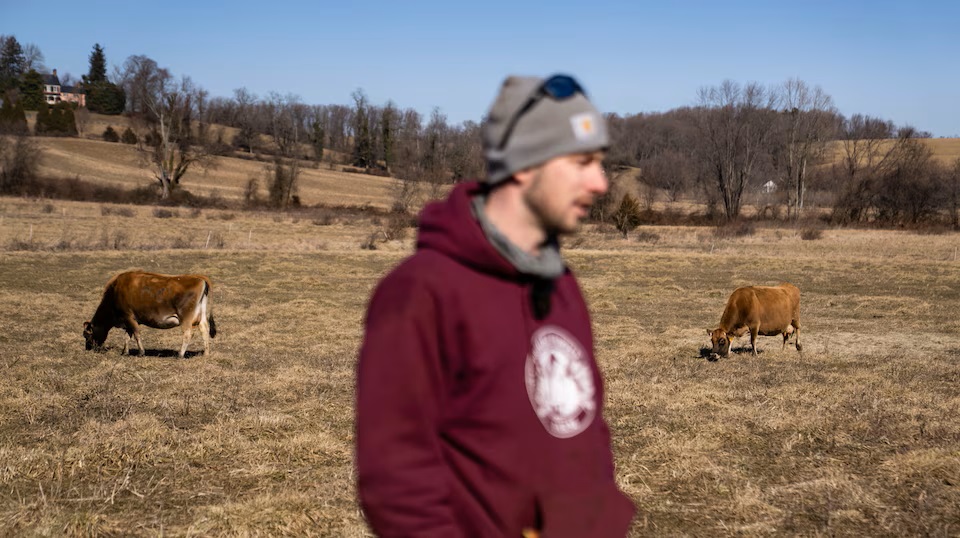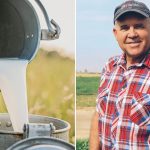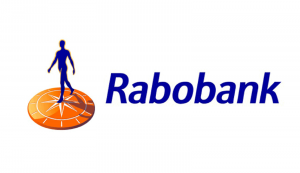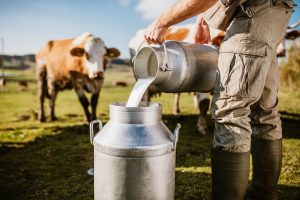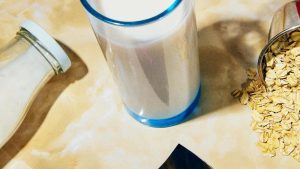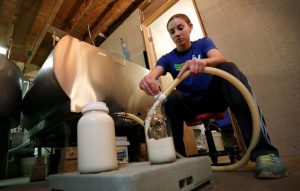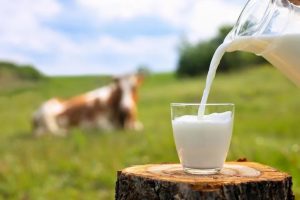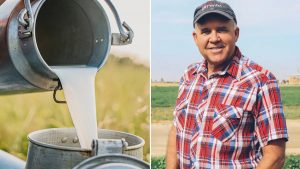
Twice a day, Matt Prigel leads his cows from a grassy field across an asphalt road toward the milking parlor on the Baltimore County farm his family has owned for five generations.
Of the approximately 92 gallons of milk the cows produce each day, most will be processed and pasteurized, or heated briefly to kill viruses and bacteria. But some of it is left unpasteurized and is packaged, labeled and sold as raw pet’s milk.
It’s the way Prigel and a small but growing group of consumers prefer to drink it — even though it’s illegal to sell for human consumption in Maryland.
Currently, some of Maryland’s raw milk enthusiasts drive to get their favored beverage in nearby Pennsylvania, where farms with a permit are allowed to put the product up for retail. But making that trip is dangerous, according to Prigel.
“The most important thing with milk is keeping it cold and keeping it clean,“ he said, which is difficult when milk is transported long distances. In 2012, several cases of campylobacteriosis in Maryland were linked to raw milk from a farm in Pennsylvania.
Prigel supports a House bill introduced by Del. Kathy Szeliga, a Baltimore County Republican and vice chair of the pro-Trump House of Delegates Freedom Caucus, that would legalize the sale of raw milk for human consumption in Maryland while creating new regulations for the product.
“I look at it as part of the move that we’re seeing for functional medicine and a push towards making Americans healthy again,” Szeliga said. The bill has support from a bipartisan mix of co-sponsors from around the state.
The legislation comes amid a rising cultural tide for raw milk — including the ascension of new U.S. health secretary Robert F. Kennedy Jr., who has criticized the FDA’s “aggressive suppression” of the product and claims to drink it himself. Raw milk sales last year surged last year, according to a report from NielsenIQ.
Opponents say that the legalization of raw milk for human consumption could help spread disease at a time when an avian flu outbreak has spread to dairy cows. That development was “quite the plot twist” in the eyes of epidemiologists and veterinarians, according to Meghan Davis, an associate professor at the Johns Hopkins Bloomberg School of Public Health who opposes the sale of raw milk for both pets and humans.
Davis said that when dairy cows develop bird flu, “milk literally becomes the most infectious thing from the cow.”
“This just highlights how infectious raw milk can be,” she said, noting that Szeliga’s bill makes no mention of the virus. Should consumers crave its rich flavor, Davis recommends looking for a cream-line milk, which is unprocessed milk that has been pasteurized.
A former dairy cow veterinarian, Davis says she used to consider it a personal issue if farmers wanted to drink unpasteurized milk from a single healthy animal they owned. That’s because farmers are already exposed to bacteria on the farm in their day-to-day activities, so drinking their cow’s milk wouldn’t necessarily pose substantial additional risk to them.
But she’s rescinded that caveat as bird flu spreads, since the risk of getting avian flu by drinking unpasteurized milk is so great. Should bird flu develop the ability to spread from person to person instead of just animal to person, it could be the makings of the next pandemic. “The more people who are infected, the more times the virus gets to ‘flip the coin’ and see if any genetic changes in that particular strain let it spread more easily,” Davis said.
In Baltimore in the late 1800s and early 1900s, outbreaks of typhoid and other diseases were frequently linked to local dairies. City officials were early adopters of rules to stem the spread by requiring pasteurization and other regulations to ensure cleanliness — sometimes over opposition from farmers.
The 1924 federal milk ordinance, eventually adopted by all 50 states, has been seen as one of public health’s greatest success stories, credited with saving lives and ensuring that dairy products in America are among the safest in the world.
But in recent years, online health and wellness influencers have been preaching to their followers the benefits of drinking raw milk, a beverage once seen as the purview of hippies and health food stores. Right-wing podcasters have taken up the cause as a symbol of freedom and rebellion against perceived overreach from the federal government. They have falsely claimed that pasteurization involves the addition of chemicals into milk.
Bowie resident Liz Reitzig says she first tried raw milk over 20 years ago when her infant daughter was facing health issues that “completely cleared up” after Reitzig made the switch from pasteurized.
Reitzig, who runs the website Raw Milk Mama and an advocacy group called Nourishing Liberty, said she was part of a previous push to allow the retail sale of raw milk for pets in Maryland. Now she’s working with Prigel and Szeliga on the legislation that would make it legal for humans.
Prigel Creamery only began selling raw pet’s milk in 2023. Since then, sales for the product have “probably tripled,” Prigel said.
While many customers do drink it themselves, the current rules mean its illegal for Prigel to tell them it’s safe to consume. “By law, I cannot tell them they can drink it,” he said.
Prigel sees raw milk and its expanding customer base as a path forward for his family’s business at a time when dairies are rapidly closing in Maryland, and in Baltimore County in particular. Dairy farmers can set their own prices for raw milk, which tends to go for a premium. At their farm store in Glen Arm and at a stand in Belvedere Square, Prigel’s raw pet milk goes for $7 per half gallon. A half gallon of whole milk is about $4.45.
Both Reitzig and Prigel say that legalizing raw milk would make the product safer for consumers who are going to drink it regardless, adding permitting rules and regulations on how it’s made and where it can be sold. And they believe it would help curb what they describe as a thriving black market for raw milk, where farmers drop off half gallons in a parking lot for consumers.
Reitzig also said the ability to sell raw milk could lead to “a renaissance of fresh and local food in Maryland from Maryland farmers.” Prigel agreed: “We need to grow our dairy herds in Maryland, and we need more dairy farms in Maryland,” he said, adding that raw milk is an avenue toward that.
Prigel admitted there’s no way to ensure his cows won’t get avian flu, though he noted that Maryland health officials now test his cows’ milk every two weeks for the virus. Szeliga says if “a person is worried about the transmission of avian flu through raw milk, they certainly don’t have to buy it.”
Not all of Prigel Creamery’s customers are likely to embrace it.
When the farm posted on Facebook this month about raw milk and a partnership with Reitzig, comments seemed fairly evenly split between supporters and critics. “You’ve lost a customer and I will be telling all my friends to avoid you,” wrote one. “This is too dangerous.”
You can now read the most important #news on #eDairyNews #Whatsapp channels!!!
🇺🇸 eDairy News INGLÊS: https://whatsapp.com/channel/0029VaKsjzGDTkJyIN6hcP1K
